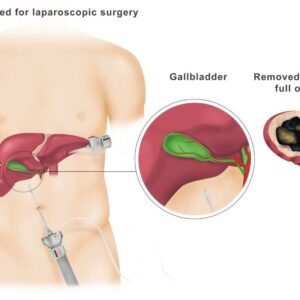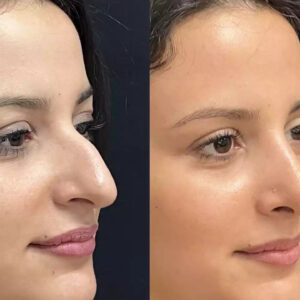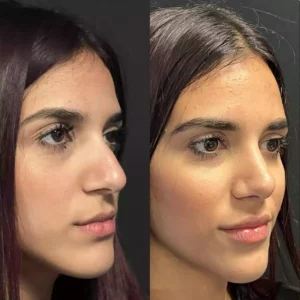Hypersomnia, a condition characterized by excessive sleepiness during the day despite adequate nighttime sleep, can severely affect daily life, productivity, and overall well-being. Many individuals with hypersomnia struggle to stay alert, maintain focus, and perform routine tasks, which can impact both professional and personal life. Effective hypersomnia treatment involves a combination of medical interventions, lifestyle adjustments, and behavioral strategies aimed at improving sleep quality and boosting daytime energy.
This comprehensive guide explores the top strategies for managing hypersomnia, enhancing daytime alertness, and improving overall quality of life.
Understanding Hypersomnia
Hypersomnia is not simply about feeling tired; it is a chronic sleep disorder that disrupts the body’s natural sleep-wake cycle. Individuals with hypersomnia may sleep 10–12 hours a night yet still feel drowsy and fatigued during the day.
There are two primary types of hypersomnia:
-
Primary Hypersomnia (Idiopathic): A neurological condition with no clearly identifiable cause, often linked to brain mechanisms regulating sleep and wakefulness.
-
Secondary Hypersomnia: Resulting from underlying medical conditions, medications, mental health issues, or lifestyle factors such as irregular sleep schedules.
Identifying the type of hypersomnia is critical for implementing effective hypersomnia treatment, as it guides the selection of appropriate therapies and interventions.
Causes of Hypersomnia
Effective management begins with understanding the causes. Common contributors include:
1. Neurological Conditions
Disorders such as idiopathic hypersomnia or narcolepsy interfere with the brain’s natural regulation of sleep and alertness, leading to persistent daytime drowsiness.
2. Sleep Apnea
Obstructive sleep apnea disrupts breathing during sleep, causing repeated awakenings and non-restorative sleep, which can contribute to daytime fatigue.
3. Mental Health Conditions
Depression, anxiety, and chronic stress may interfere with sleep quality and exacerbate hypersomnia symptoms. Treating underlying mental health issues is often essential for successful hypersomnia treatment.
4. Medications
Certain medications, including sedatives, antihistamines, and antidepressants, may increase drowsiness, contributing to excessive sleepiness.
5. Medical Conditions
Thyroid imbalances, chronic fatigue syndrome, and neurological diseases such as Parkinson’s disease can all contribute to hypersomnia.
6. Lifestyle Factors
Irregular sleep schedules, poor sleep hygiene, shift work, and lack of physical activity can worsen daytime sleepiness. Addressing these factors is a cornerstone of effective hypersomnia treatment.
Recognizing Symptoms
Early recognition of hypersomnia symptoms is key for timely intervention. Typical symptoms include:
-
Persistent daytime sleepiness
-
Difficulty waking in the morning
-
Frequent unplanned naps
-
Mental fog, slowed thinking, and memory issues
-
Mood disturbances such as irritability or depression
-
Decreased performance at work or school
Persistent symptoms should prompt evaluation by a healthcare professional to develop an effective hypersomnia treatment plan.
Top Strategies for Hypersomnia Treatment
1. Lifestyle Adjustments
Lifestyle modifications are often the first and most effective line of defense:
-
Maintain a Consistent Sleep Schedule: Go to bed and wake up at the same time daily.
-
Optimize Sleep Environment: A dark, quiet, and cool room promotes restorative sleep.
-
Limit Stimulants and Alcohol: Avoid caffeine and alcohol close to bedtime.
-
Regular Exercise: Moderate physical activity enhances energy levels and improves sleep quality.
-
Stress Management: Techniques such as meditation, yoga, and deep breathing can reduce sleep disruptions caused by stress.
Consistently applying these strategies is essential for maintaining both nighttime rest and daytime alertness.
2. Medical Therapies
Medical treatments are often required for moderate to severe hypersomnia:
a. Prescription Medications
-
Wake-Promoting Agents: Modafinil and armodafinil enhance daytime alertness without the jitters associated with traditional stimulants.
-
Stimulants: Medications like methylphenidate or amphetamines may be prescribed in severe cases.
-
Sodium Oxybate: Improves nighttime sleep and reduces daytime sleepiness, particularly in narcolepsy-associated hypersomnia.
b. Treating Underlying Conditions
-
Sleep Apnea: CPAP therapy or oral devices restore normal breathing during sleep.
-
Thyroid Disorders: Hormone regulation alleviates fatigue.
-
Mental Health Conditions: Therapy and medications can correct sleep disruptions caused by anxiety or depression.
Medical interventions are most effective when combined with lifestyle and behavioral strategies in a comprehensive hypersomnia treatment plan.
3. Behavioral and Cognitive Approaches
Behavioral interventions complement medical therapy:
-
Cognitive Behavioral Therapy for Insomnia (CBT-I): Helps regulate sleep patterns and reduce daytime sleepiness.
-
Structured Napping: Short naps (20–30 minutes) can increase alertness without affecting nighttime sleep.
-
Mindfulness and Relaxation: Meditation, yoga, and breathing exercises improve sleep quality and cognitive performance.
These strategies are particularly useful for long-term management, helping break the cycle of excessive sleep and daytime fatigue.
4. Nutrition and Diet
Dietary choices play a key role in managing hypersomnia and boosting daytime energy:
-
Eat a balanced diet rich in whole foods, lean proteins, and complex carbohydrates.
-
Avoid processed sugars and high-glycemic foods to prevent energy crashes.
-
Stay well-hydrated throughout the day.
-
Limit heavy meals close to bedtime to prevent sleep disruption.
Proper nutrition strengthens the effectiveness of other hypersomnia treatment approaches and supports sustained daytime energy.
5. Daily Energy Management Tips
In addition to professional treatment, daily habits help maximize alertness and productivity:
-
Maintain a sleep diary to monitor sleep patterns and identify triggers.
-
Schedule high-focus tasks during periods of peak alertness.
-
Incorporate physical and mental stimulation throughout the day to reduce drowsiness.
-
Engage support networks such as family, friends, or support groups to maintain accountability and motivation.
Applying these strategies consistently ensures optimal results from professional hypersomnia treatment.
Frequently Asked Questions (FAQs)
1. Can hypersomnia be cured?
Most cases are managed rather than fully cured. Treatment focuses on symptom control, improving sleep quality, and enhancing daytime performance.
2. How long does hypersomnia treatment take to work?
Lifestyle changes may show improvements within weeks, while medications or therapies may take several weeks to months.
3. Are naps recommended?
Yes, short, scheduled naps can improve alertness without disrupting nighttime sleep.
4. Does diet affect hypersomnia?
Yes, a balanced diet, proper hydration, and stable energy intake support alertness and complement other treatment strategies.
5. When should I consult a healthcare provider?
Seek medical advice if daytime sleepiness interferes with daily life or persists despite lifestyle adjustments.
Conclusion
Hypersomnia can greatly affect daily life, productivity, and mental well-being. Effective hypersomnia treatment combines lifestyle adjustments, medical therapies, behavioral strategies, nutrition, and daily energy management to improve sleep quality and enhance daytime alertness.
Early diagnosis and a personalized treatment plan are key to long-term success. By integrating professional guidance with practical daily strategies, individuals with hypersomnia can regain energy, focus, and a higher quality of life. With consistent effort, it is possible to manage excessive sleep, restore natural sleep patterns, and achieve sustained daytime alertness.






